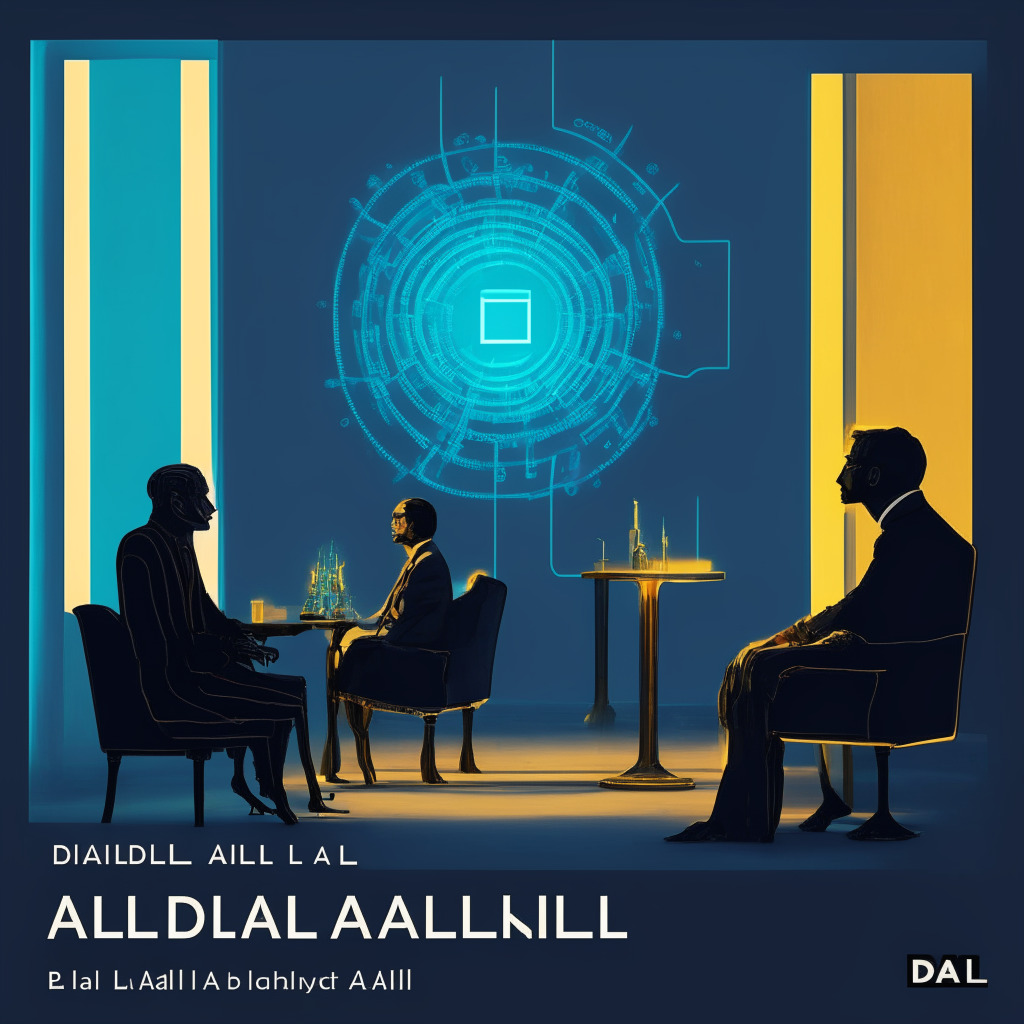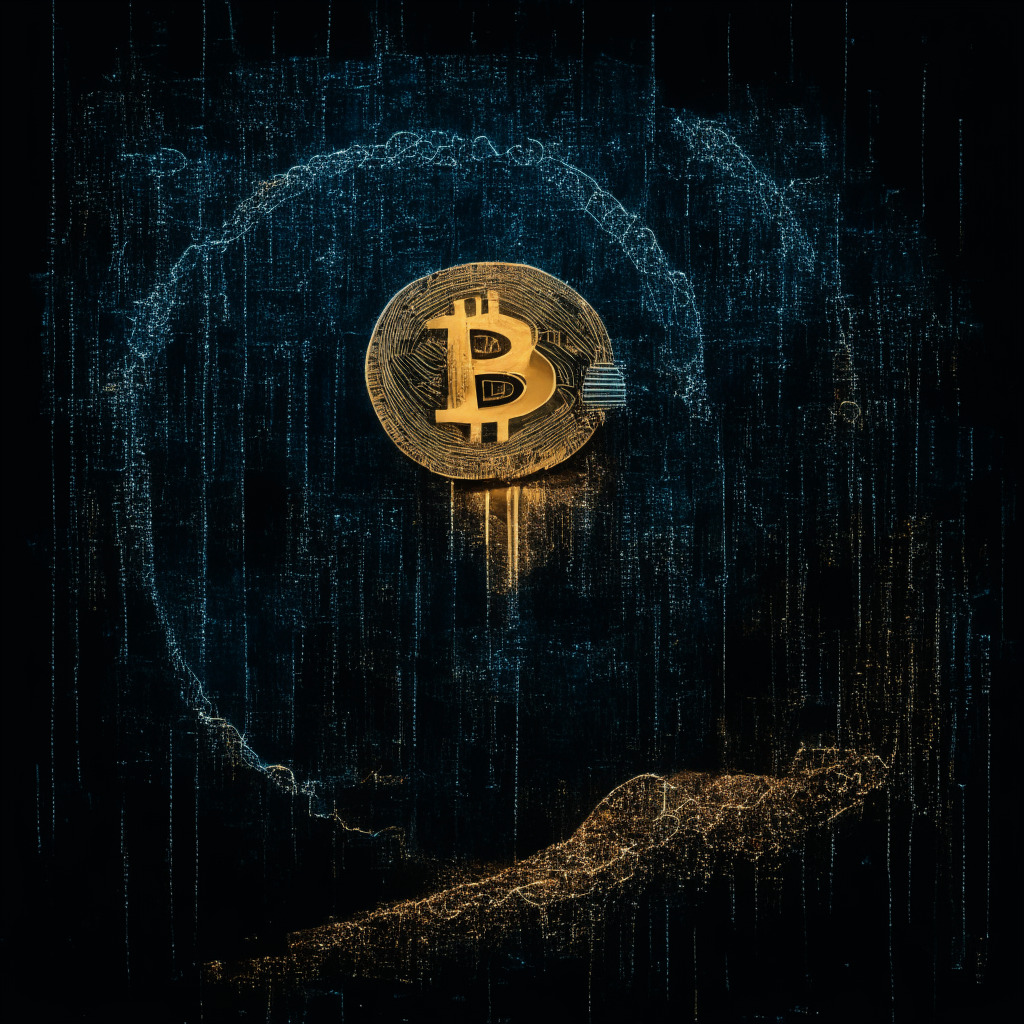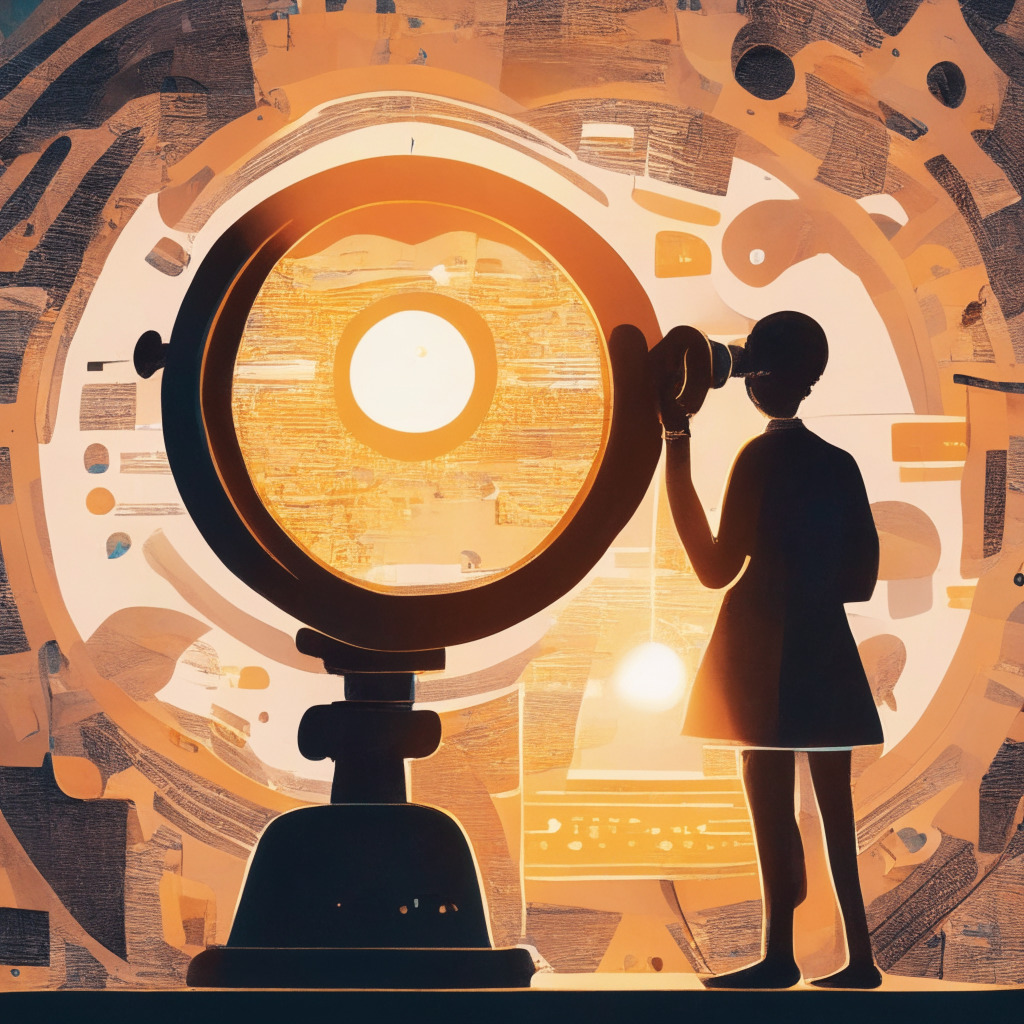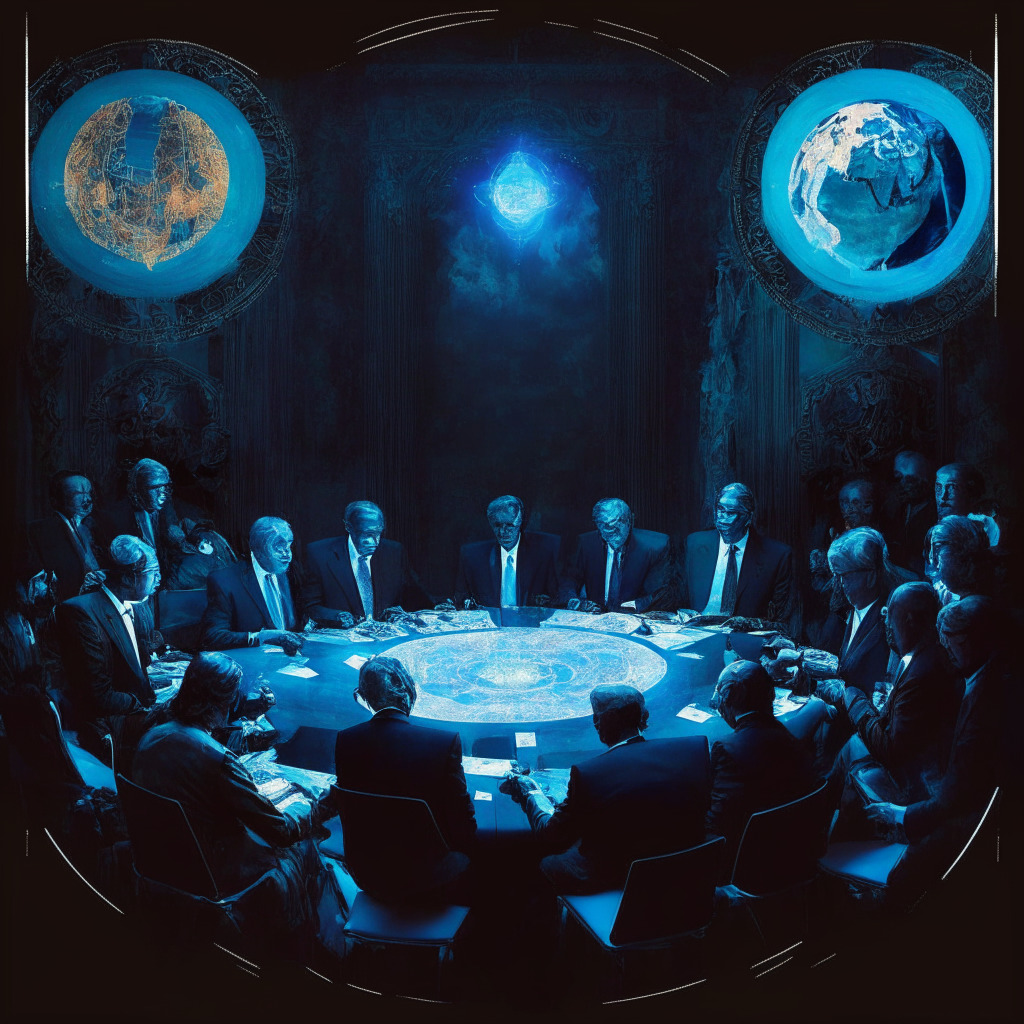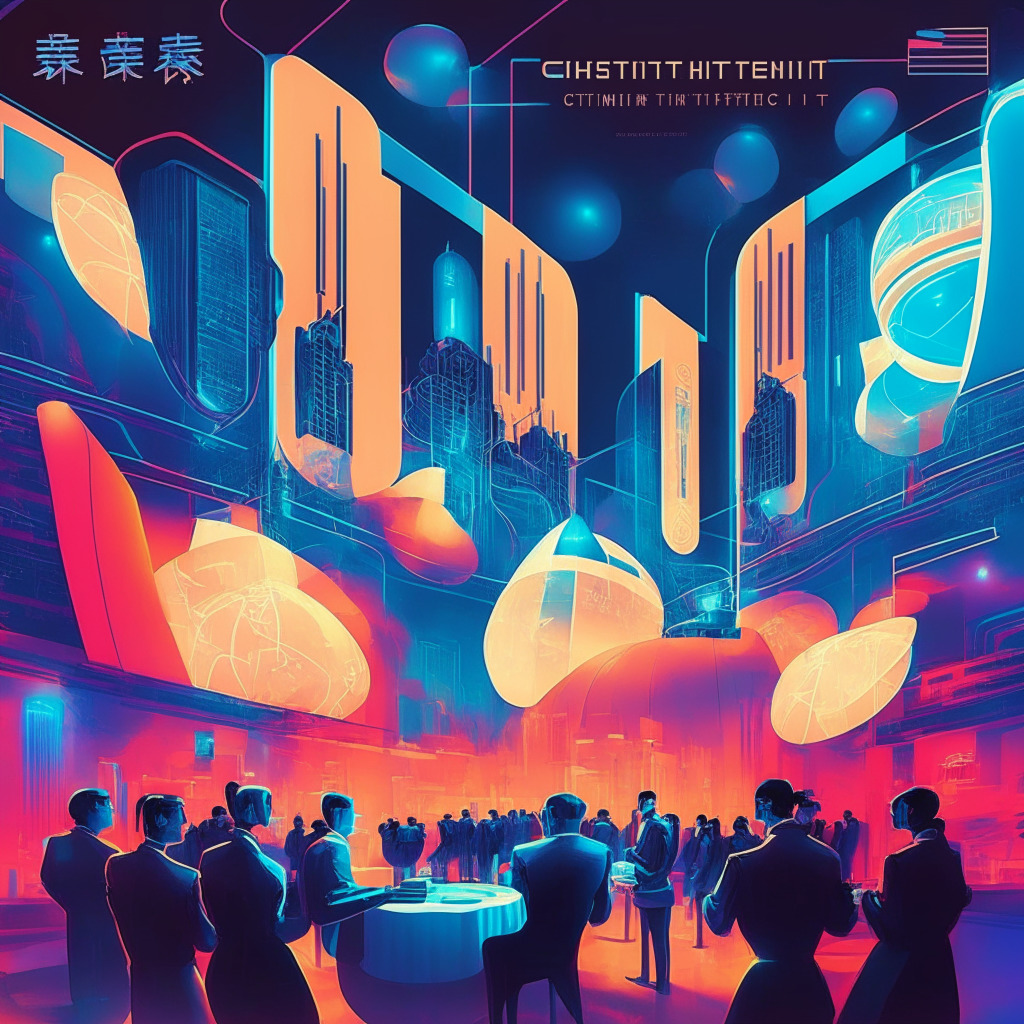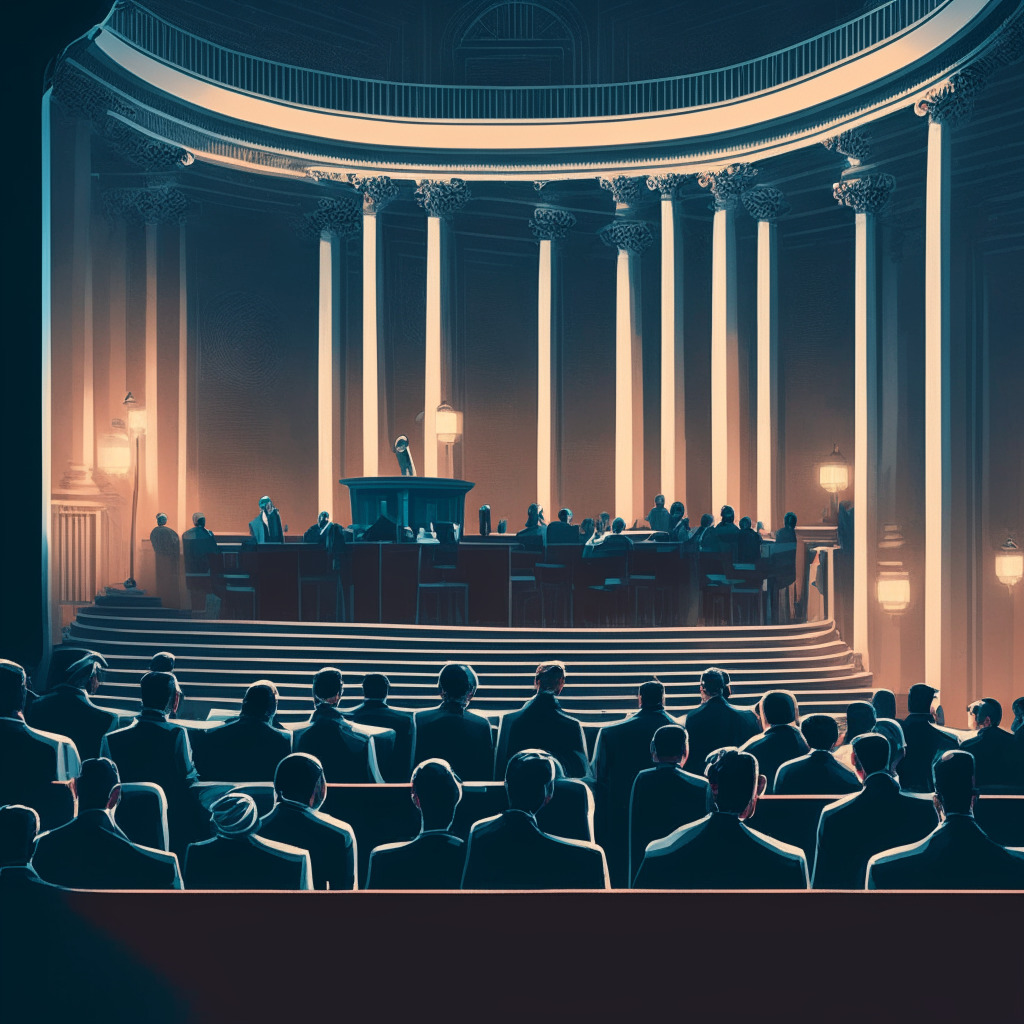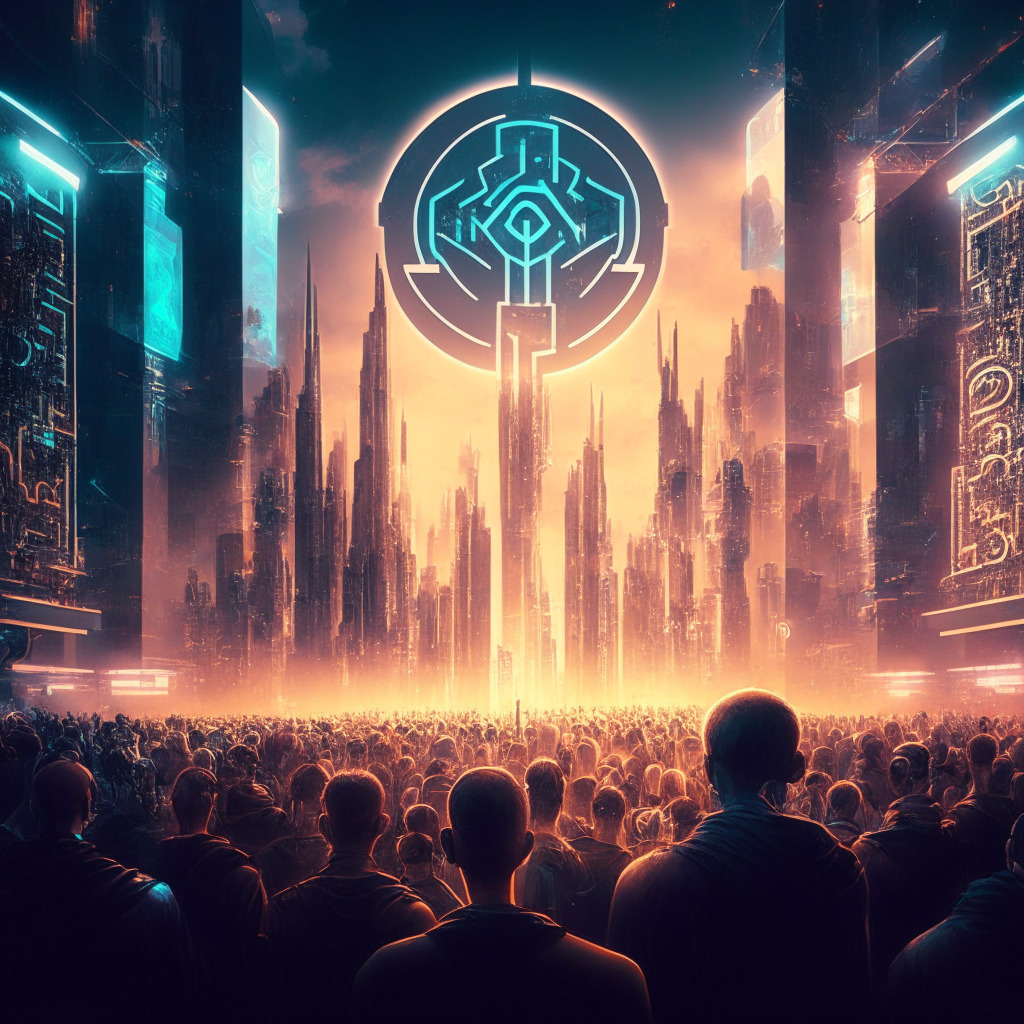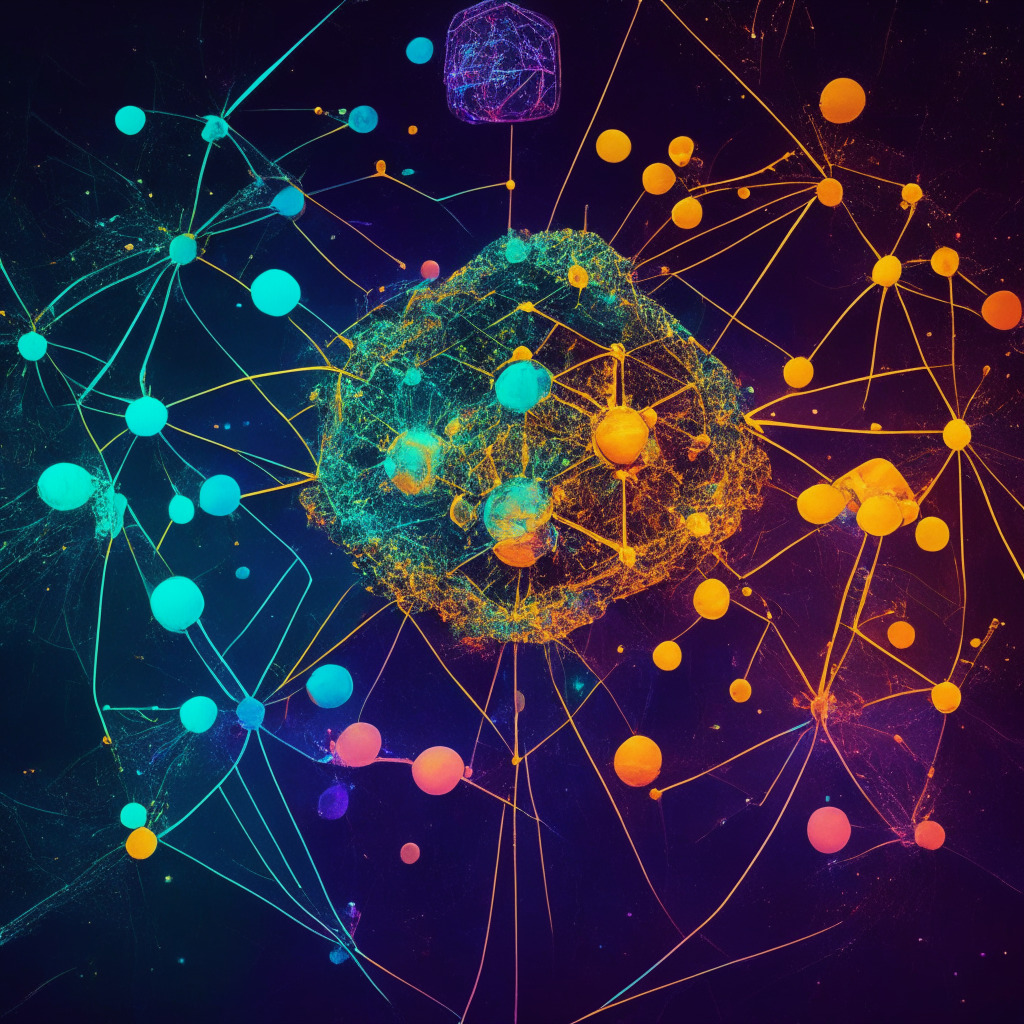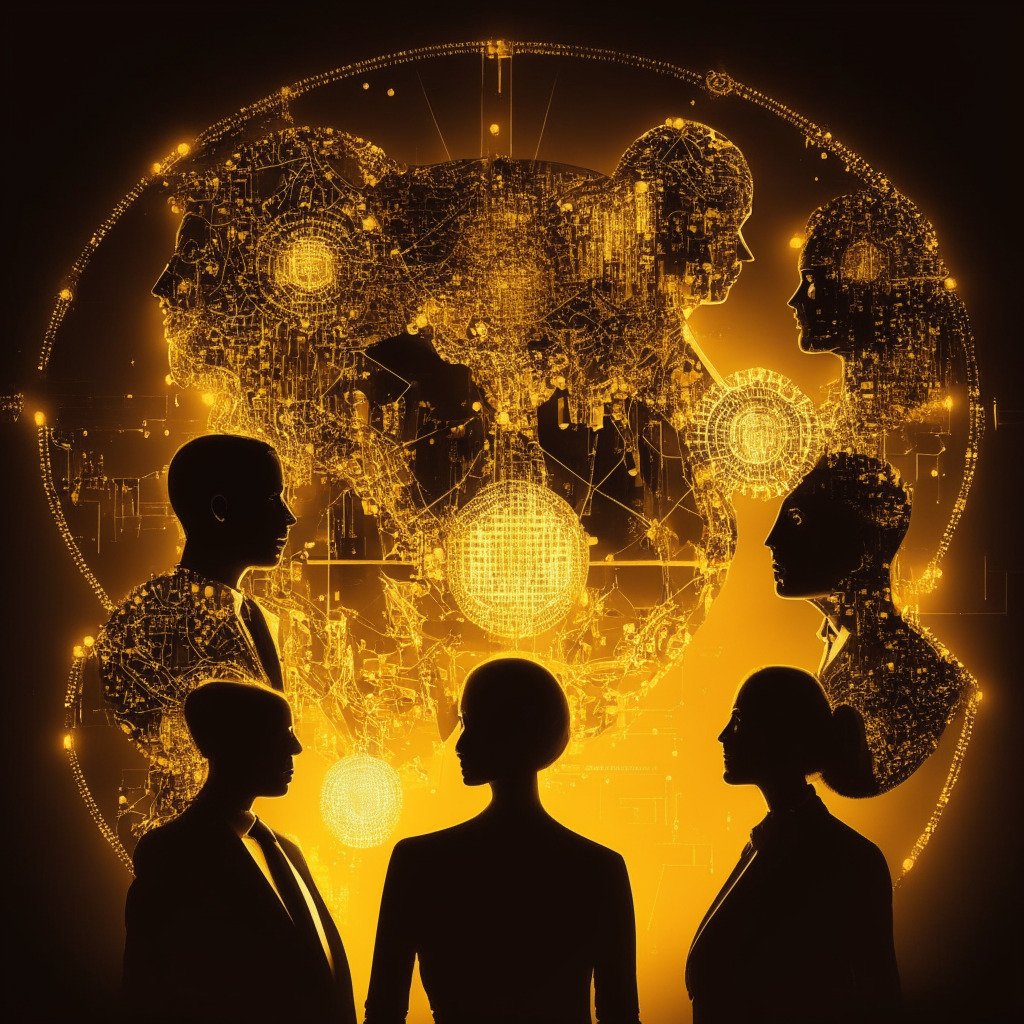OpenAI CEO Sam Altman is set to meet with Indian Prime Minister Modi to discuss India’s potential role in AI regulation, job market impacts, and the country’s capability in shaping global AI discussions. The collaboration could lead to significant advancements in the AI and technology sectors.
Search Results for: OpenAI CEO
Unveiling the Future of Bitcoin: OpenAI’s Endorsement, Putin’s Dollar Shift Concerns and Price Trends
The CEO of OpenAI, Sam Altman, praises Bitcoin for its potential to combat corruption due to its independence from government control. He and Joe Rogan express concern over US handling of cryptocurrency regulation and central bank digital currencies. Despite recent price dips, Altman and Rogan remain hopeful for Bitcoin’s future due to its limited supply and decentralized mining. However, they caution that like all investments, cryptocurrencies are volatile and risky and require careful research and strategy.
OpenAI’s Crossroad: In-House Chip Production versus Outsourcing amidst Global Shortage
Amid a global chip shortage, artificial intelligence firm OpenAI debates on whether to bring chip production in-house or continue working with chip suppliers like NVIDIA. This decision could present unprecedented challenges, but may also provide a pathway for managing technological advancements and supply scarcity in the broader tech industry.
Meta AI vs OpenAI’s ChatGPT: The Dawn of a New Social Media Interaction Era and Its Ramifications
“Mark Zuckerberg sets to launch Meta AI, interacting across platforms like Instagram and Facebook. Aiming to outdo OpenAI’s ChatGPT, Meta tailors AI products to distinct use cases and entertainment, scheduled to release to selected U.S users and integrate with upcoming smart glasses.”
Unfair Practices or Unjust Scrutiny: FTC Probes into OpenAI’s ChatGPT and Its Implications
The Federal Trade Commission is rigorously investigating OpenAI’s ChatGPT, an AI conversation bot, for potential “unfair or deceptive privacy or data security practices”. This scrutiny raises questions about OpenAI’s privacy and data security protocol, and hints at possible financial penalties if any infractions are found. The tool’s undeniable potential is offset by significant ethical considerations and potential for misuse.
SoftBank CEO’s Emotional AI Connection: Examining ChatGPT’s Impact on Decision-Making & the Future
SoftBank CEO Masayoshi Son shares his emotional connection to ChatGPT, an AI chatbot developed by OpenAI. He envisions a future where technology can mitigate societal ills, such as natural disasters. However, skepticism remains regarding potential risks and downsides of AI dependence, including job displacement and the power dynamics between humans and AI.
South Korea: Emerging Powerhouse in AI Chip Development and Collaboration with OpenAI
OpenAI CEO Sam Altman recently met with South Korean President Yoon Suk Yeol, discussing South Korea’s potential to lead in AI chip development, and expressing interest in investing in Korean startups and collaborating with chipmakers like Samsung Electronics. Altman encouraged reduced corporate regulations to foster AI projects and strengthen international standards.
Democratizing AI Governance: OpenAI’s $1M Grant Initiative for Ethical System Rules
OpenAI will award ten $100,000 grants for experiments in establishing a democratic process for AI system rules, aiming for responsible oversight of AGI and superintelligence. This initiative raises essential questions around AI governance and transparency, with results freely accessible to the public to promote ethical AI conduct and a responsible future for artificial intelligence.
OpenAI’s EU Dilemma: Adapting to AI Regulations or Withdrawing Services?
OpenAI CEO Sam Altman hints at potentially withdrawing ChatGPT services from Europe if compliance with upcoming EU AI regulations is unattainable. Altman calls for revising proposed regulations, with concerns over revealing copyrighted materials used in AI tools.
Apple Takes a Bite of OpenAI’s ChatGPT Profits: A Dance between Pioneers and Big Tech
OpenAI’s ChatGPT iPhone app has quickly climbed App Store charts, with Apple endorsing it as a “must-have” app. Apple’s infamous 30% cut, or “Apple Tax,” on new iOS subscriptions means the tech giant profits from every ChatGPT Plus subscription, highlighting the complex interactions among AI pioneers, big tech, and regulators in this emerging revolution.
Balancing AI Innovation and Control: OpenAI’s 3-Pillar Strategy for Superintelligence Governance
OpenAI CEO Sam Altman and team warn of AI systems progressing beyond expert skill levels, affecting the global corporate landscape, and emphasize the need for governance of superintelligence. They propose three-pillars: balancing control and innovation, creating an international AI governance authority, and maintaining technical capability to control superintelligence.
Probing Worldcoin: Balancing Blockchain Innovation and Data Privacy Regulations
“In a recent update from the Information Commissions Office (ICO), scrutiny is issued towards Worldcoin, a project by OpenAI CEO Sam Altman. Despite claiming compliance with “very, very local and very specific rules and regulations,” concerns about data privacy and regulations persist. As blockchain technology advances, the necessity for cautious, astute regulations becomes more critical.”
Regulating AI: Balancing Innovation with Generative Dangers and Global Cooperation
UN Secretary-General António Guterres joins the call for AI regulation, comparing its potential threat to humanity to nuclear war. European Parliament passes world’s first-ever AI legislation, while OpenAI CEO Sam Altman supports regulating AI through establishing a government office and standards for development.
Indian AI Startups Challenging the Giants: Hopeless or a Path to Innovation?
OpenAI CEO Sam Altman’s comment, seemingly dismissing Indian startups’ ability to compete with American AI companies, sparked debate among local business leaders. However, Altman later clarified his statement and expressed confidence in Indian startups’ potential to contribute significantly to the world of AI and technology.
China’s Role in AI Regulation: Balancing Innovation and Global Security Concerns
OpenAI CEO Sam Altman emphasizes the importance of including China in shaping AI regulations due to its wealth of AI talent. Amid growing national security concerns, international collaboration is crucial for addressing challenges posed by AI advancements, ensuring safety and fostering technological innovation.
The Orb: Unveiling Worldcoin’s Controversial Iris Scanning Crypto Project
OpenAI CEO Sam Altman’s Worldcoin project aims to create a global ID, currency, and a crypto payment app, raising concerns and skepticism over its biometric data requirement. With The Orb as its central tool, Worldcoin recently raised $115 million in Series C round, garnering investor enthusiasm despite the concerns.
Worldcoin’s Decentralized Identity: Security Breakthrough or Privacy Nightmare?
Worldcoin, co-founded by OpenAI CEO Sam Altman, raises $115 million for its decentralized World ID and World App, a crypto wallet. The project uses zero-knowledge proofs for digital identity security, but faces concerns about surveillance, personal data misuse, and censorship.
Worldcoin’s Iris Scanning: Ensuring Uniqueness or Compromising Privacy?
OpenAI CEO Sam Altman has secured $115 million in Series C funding for Worldcoin, a cryptocurrency project focused on the Worldcoin token and decentralized World ID. The project aims to distribute tokens based on individuals’ unique statuses, using iris scans for identity verification. However, privacy concerns and potential safety risks have drawn criticism.
Worldcoin’s Astonishing $115M Funding Round: Opportunities, Risks, and the Crypto Black Market
Worldcoin, a decentralized open-source protocol co-founded by OpenAI CEO Sam Altman, recently raised $115 million in a Series C funding round led by Blockchain Capital. The project focuses on the World ID and Worldcoin token, aiming to revolutionize the crypto ecosystem while addressing user security and privacy concerns.
Regulating AI: New Independent Agency vs. Strengthening Existing Authorities
OpenAI CEO Sam Altman proposes forming a government office for regulating AI technology, emphasizing the importance of safety standards, compliance, and independent audits. The debate continues on whether to create a new agency or strengthen existing regulatory authorities to balance technological advancements and societal protection.
AI Regulation: Striking the Balance Between Security and Innovation
In a Senate subcommittee session, OpenAI CEO Sam Altman testified before Congress, discussing the potential threats of generative AI models and the need for AI regulation. The speakers urged for immediate action, privacy protection, government oversight, and transparency. However, finding the right balance between controlling AI dangers and fostering innovation remains crucial to ensure a safe, responsible future.
AI Licenses: Striking a Balance Between Innovation and Safety in the Crypto World
OpenAI CEO Sam Altman testifies before U.S. Congress, advocating for AI regulation requiring safety standard compliance and system testing. However, concerns arise over potential over-regulation stifling innovation in the AI and crypto industries.
Worldcoin’s Billion-Dollar Valuation: Crypto Utopia, Privacy Risk, or Both?
Worldcoin, the crypto project led by OpenAI CEO Sam Altman, aims to raise $100 million in a new financing round, attracting investors with its vision of a universal digital currency distributed fairly using biometric iris scans. Despite controversy and concerns, Worldcoin continues gaining momentum in the crypto community.
AI Regulation Debate: Halt in Development or Prioritize Ethics? Congress to Decide
A congressional hearing on AI oversight featuring prominent figures like OpenAI CEO Sam Altman, IBM’s Christina Montgomery, and NYU’s Gary Marcus will discuss potential regulations and address safety and privacy concerns. As AI regulation debates continue, the impact on industries like fintech, cryptocurrency, and ethical AI development remains uncertain.
Decoding The Future: Blockchain, Bitcoin, and the Fear of Centralized Digital Currencies
“Blockchain technology and cryptocurrencies are transforming financial infrastructures, providing a decentralised exchange method. Cryptocurrencies like Bitcoin could pave the way for a transparent, corruption-free global currency. However, concerns about government control, environmental impact, and the implications of Central Bank Digital Currencies (CBDCs) are also emerging.”
Kenyan Government’s Inspection of Worldcoin: Balancing Innovation with Regulatory Caution
The Kenyan Government has established a committee to investigate the controversial Worldcoin initiative, with particular emphasis on potential security threats from Worldcoin’s data collection methods including iris scanning. This comes following significant opposition from various regulatory bodies and widespread concern about legal aspects and secure storage for sensitive biometric data.
Navigating the Tempest: Unraveling BTC’s Bearish Cycle, Regulatory Uncertainty, and Novel Crypto Projects
As Bitcoin hobbles into a bearish cycle breaching a solace sight unseen for a month at $29,000; investor anxieties increase in light of the Federal Reserve’s impending rise in interest rates. Crypto markets fluctuate alongside the scrutiny of novel crypto projects and potential repercussions of regulatory uncertainty, illustrating a web of factors shaping the crypto industry.
EU AI Act: Balancing Innovation and Ethics in Artificial Intelligence Regulation
The European Parliament recently passed the EU AI Act, aiming to promote human-centric and trustworthy AI while protecting health, safety, and fundamental rights. The act restricts certain AI services and products, including biometric surveillance and predictive policing, while allowing generative AI models like OpenAI’s ChatGPT and Google’s Bard, provided they are clearly labeled. The challenge lies in balancing innovation and safety in AI development.
AI Regulation Debate: Licensing Model Pros, Cons, and Balancing Innovation with Safety
UK officials propose licensing AI technology, similar to pharmaceutical or nuclear power companies, to regulate AI at the developmental level. The approach aims to address concerns about bias, discrimination, surveillance, and potential risks associated with AI technology.
Decentralization vs Centralization: Managing AI Extinction Risks with Crypto Principles
The crypto industry’s decentralization mindset could play a role in AI risk mitigation, addressing concerns of centralization and monopolization. A balance between national government regulation, international treaties, and decentralized governance models is needed for effective collaboration between governments and the crypto industry, ensuring AI technology develops safely.
Balancing AI Innovation and Privacy: Navigating International Regulation and Ethical Concerns
Japan’s Personal Information Protection Commission warns OpenAI’s ChatGPT to not collect sensitive data without explicit consent, stressing privacy concerns and potential AI benefits. International efforts are underway to regulate AI responsibly while balancing innovation and global challenges.
AI Safety vs. Progress: Striking a Balance in the Race to Advanced AI and Blockchain Integration
AI experts, including CEOs of OpenAI, Google DeepMind, and Anthropic signed a statement declaring the mitigation of extinction risks from AI as a global priority. While some perceive AI as a solution, others argue that regulation and a risk-averse approach are necessary for a harmonious coexistence between humans and AI.
